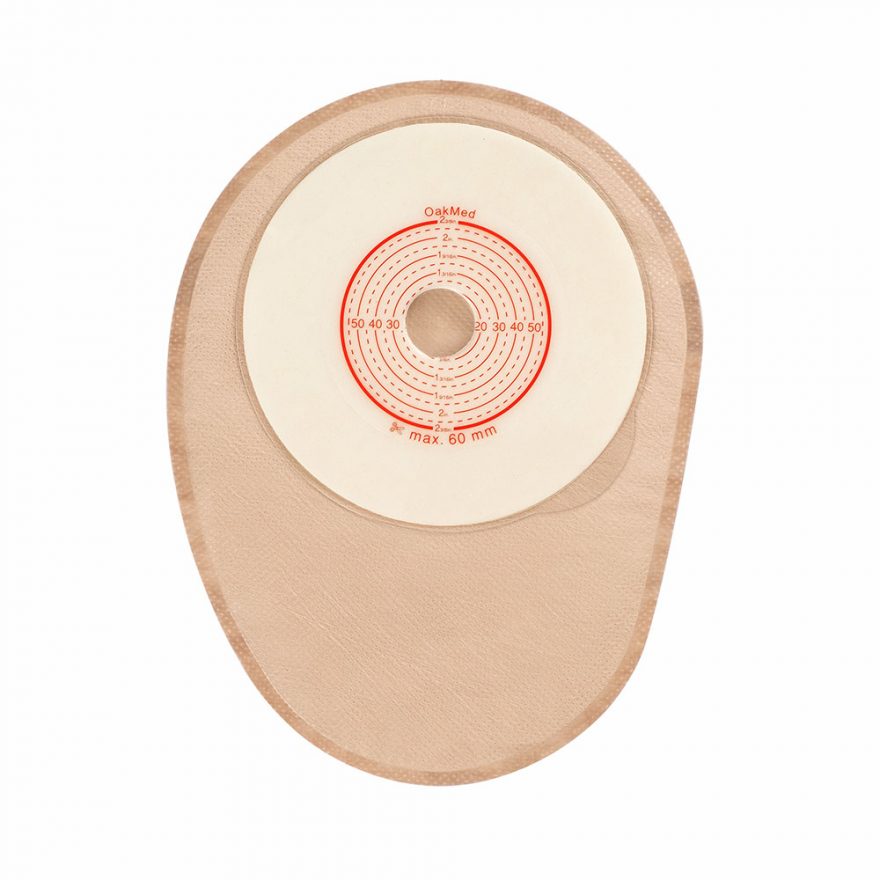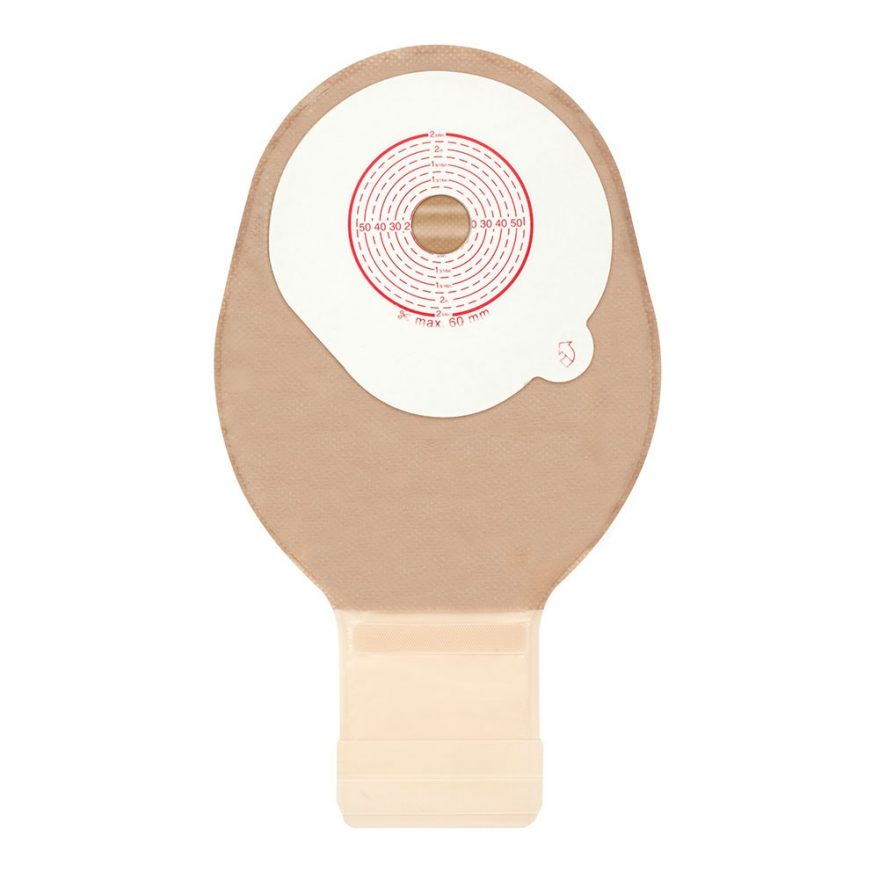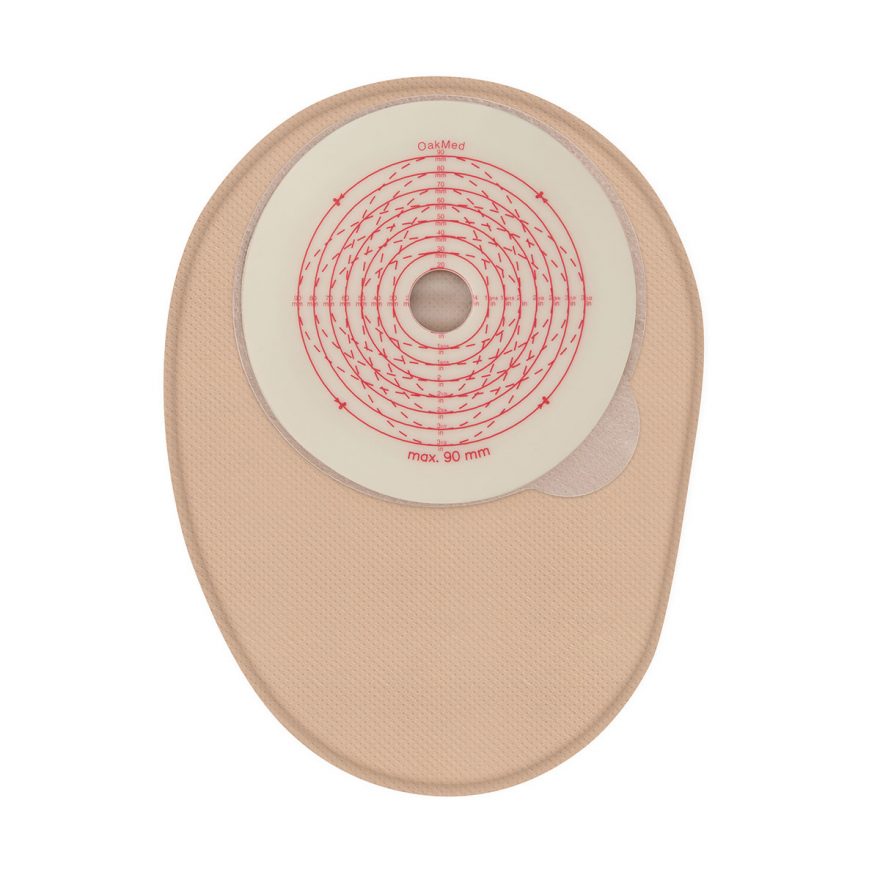Stoma irrigation is otherwise known as colostomy irrigation. Colostomy irrigation is a way of regulating your bowel movements by emptying your colon at a schedule time, using water. The water stimulates the muscles within the bowel to move and helps the bowel empty.
What is colostomy irrigation?
A colostomy is an opening in the colon (large bowel) which is brought to the surface of the abdomen so that stool/waste empties into a stoma pouch, instead of going into the rectum and passing out of the anus (bottom). Irrigating can help regulate your bowel movements by flushing and emptying the colon at a scheduled time. Often a stoma pouch won’t need to be worn between irrigations.
Irrigation involves instilling a measured amount of 500-1500mls of warm water into your colon via your colostomy. By instilling water into your bowel, it stimulates the colon to contract (peristaltic action) and as a result it will expel the contents of the last part of your bowel. The desired effect is that stool is passed only at the time of irrigation, therefore giving some control back for the person irrigating.
The irrigation process needs to be repeated on a regular basis, such as once a day or once on alternate days. It takes approx. 6-8 weeks for the bowel to become regulated with the use of irrigation. It is important to establish a routine and irrigate at the same time each day.
The colon then can be trained to empty with minimal spillage of stool in between the irrigations. Colostomy irrigation can also help avoid constipation.
Who is suitable for irrigation?
People with permanent colostomies made in the descending or sigmoid portion of the colon and who had regular bowel function before having a colostomy, are good candidates for irrigation.
Your stoma needs to be producing a normal, semi-formed or formed stool to be able to successfully irrigate.
Due to the equipment required to irrigate, you would need to have good eyesight and dexterity.
Irrigation is safe to use 2-3 month following your bowel surgery and stoma formation. It is key to feel well enough to start the irrigation.
Irrigation is a very personal decision; it is not for everyone. Your stoma care nurse can discuss this option with you and may offer you irrigation in clinic is she/he feels you would be a suitable candidate and would help guide you through the process if you wanted to try it out.
Who is not suitable for irrigation?
Those with inflammatory bowel conditions, such as ulcerative colitis or Crohn’s disease will not be able to irrigate.
If you suffer with irritable bowel syndrome, diverticulitis or if you have a tendency to experience diarrhoea, irrigation would not be successful.
If you have heart or kidney disease, there is potential for complications caused by fluid absorption, so medical consent would be needed.
Irrigation would not be initiated during chemotherapy or radiotherapy.
Complications such as a hernia, prolapse or tightening of the stoma known as stenosis, may make irrigation difficult.
What are the advantages?
- Greater control over your bowel function
- More confidence in personal/social relationships
- It can help with wind/gas
- You can wear a small pouch/cap rather than a larger stoma pouch
- Less worry about carrying stoma supplies wherever you go
- Enjoy a more relaxed diet
- Benefits of a regular routine
What are the disadvantages?
- Commitment and time are needed to learn how to irrigate
- Perseverance is essential as the whole process can take up to 1hour
- Irrigation will need to be paused if you experience a stomach upset, illness or have a hospital stay.
Are there any complications with irrigating?
Once you have started irrigation there is a risk you may experience stomach pain as the water is going in. If this occurs, try to insert the water very slowly or trying increasing the temperature of the water slightly. If it still occurs, the advice is to stop and massage your stomach.
You may also experience difficulty inserting the cone into your stoma, so it is advisable to use some lubrication. You may experience slight bleeding or soreness from the stoma afterwards, if care is not taken.
If you are dehydrated the bowel can often absorb the water you are using to irrigate and you are unlikely to achieve a good bowel movement as a result.


Drainable Midi Alginate
View the product

